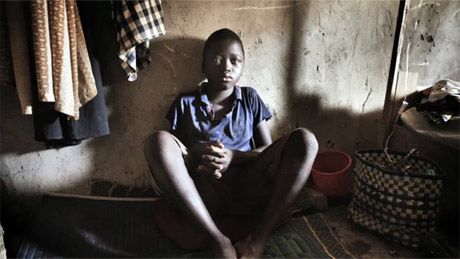The Pulitzer Center partnered with CUNY on "The World Through Women's Eyes," a film festival highlighting work by and about women around the world.
On April 7th and 8th the Pulitzer Center partnered with CUNY's Graduate School of Journalism for "The World Through Women’s Eyes,” a film festival highlighting work by and about women around the world.
On April 8th we hosted Women's Rights at Risk: Telling Their Untold Stories a screening of short films by Pulitzer Center journalists, followed by a panel discussion with the filmmakers and moderated by our executive director Jon Sawyer.
In a recent post "Documenting documentary film," Rabia Mehmood provides a snapshot of the festival and Pulitzer Center screening for Need to Know:
“I hate it because I know my future is ruined.” These are the words of the 14-year-old Haitian earthquake survivor-turned-prostitute, Lauretta, in the documentary, “Little Girls Lost,” by Lisa Armstrong and Andre Lambertston. This gripping film about a young girl’s descent into prostitution and poverty was one of the highlights of the City University of New York’s first annual “Global Documentary Film Series.”
The two-day event showcased projects from Nigeria, Liberia, Nepal, the DRC, Brazil and Afghanistan, with the common theme revolving around international women’s human rights. “The idea for the film festival came to us when we were trying to inspire students to explore ways of storytelling when the business end of journalism lets you down,” said Lonnie Isabel, director of International Reporting Project at CUNY and the chairman of the film festival. And why women in conflict? “Well, women in war is the most important under-reported story of the world,” said Isabel.
In addition to screenings, the first day of the event featured three panels: “The Documentarian as a Journalist,” “Women in Islam” and “Women in Conflict.” Panelists discussed strategies for reporting in hostile situations and the importance of debunking stereotypes set by the mainstream media with students, activists and journalists.
